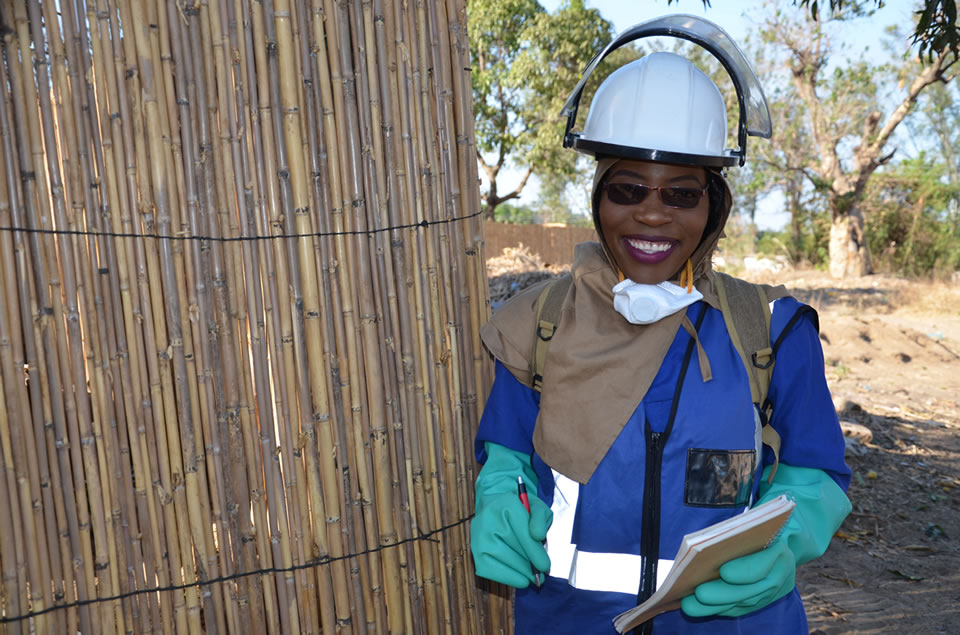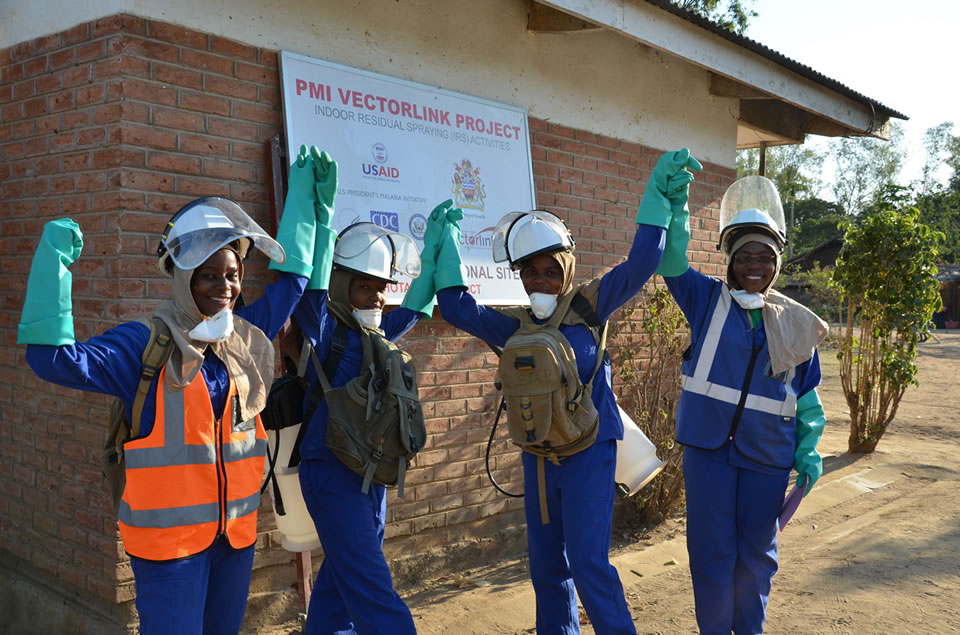For Agbethia Malenga, there is no job a woman can’t do. With a certificate in automobile mechanics, this 29-year-old is not your stereotypical woman. But it’s women like Agbethia who are helping to challenge gender roles and making a difference doing it.
Recently, Agbethia played a key leadership role in helping the U.S. President’s Malaria Initiative (PMI) VectorLink Project in Malawi to successfully carry out the country’s first indoor residual spray (IRS) campaign since 2012. IRS kills mosquitoes that transmit malaria by spraying insecticide on the walls and ceilings where mosquitoes prefer to rest. PMI returned to Malawi in 2018 to help reduce the burden of malaria in one of the country’s hardest hit areas: Nkhotakota District.
Dr. Michael Kayanga, Program Manager for Malawi’s National Malaria Control Program, said that in this district, “Contracting malaria twice in one year is expected but more than once in a month is common for children. When sick so often, children can easily slide into malnutrition. Malaria affects the entire household.”
Mortality from malaria was 19.8 per 100,000 people, according to the 2015-16 Malawi Demographic and Health Survey. “That’s 10 deaths a day – 3,650 a year from malaria alone,” said Dr. Kayanga. “The incidence of malaria is 5.8 million cases or one-third of our population. If you consider that two people care for the ill, that’s affecting the whole population.”
Pregnant women and children under five are the most vulnerable to malaria. As the primary caregivers, women face an additional burden when malaria strikes a family.
Agbethia is excited to help bring those numbers down. In 2018, PMI VectorLink sprayed 112,264 structures, protecting 501,324 people including 11,066 pregnant women and 90,953 children under five.
“I love my job. IRS is an area of work that is traditionally for men. Many men told me I couldn’t do it,” said Agbethia. “At first I wasn’t sure I could – not because I’m a woman but because it’s a big job.”
Agbethia served as an IRS site manager, overseeing 127 people, including spray operators, team leaders, washers, supervisors, storekeepers, security guards, as well as a monitoring and evaluation assistant, a finance assistant, and an information, education, and communication assistant. PMI VectorLink encourages women to apply for all positions on the project and ensures equal opportunity for women in supervisory roles. In PMI VectorLink Malawi’s first year of implementation, 40% of all seasonal staff were women.
“When I walk by, some of the mothers in the community tell their children, ‘Look at her. She’s a woman in an important job. If you work hard, you can do something important, too,’” said Agbethia.
Agbethia said the project taught her how to work under pressure and gave her the confidence she needed to manage a large site. “PMI VectorLink was very transparent in the hiring process,” she said. “The security and safety precautions on the project were excellent. They ensured women had the right safety equipment and sufficient training to protect themselves.” The project provided sexual harassment guidelines to all its workers with posters and job aides in the local language Chichewa and regular SMS messages to workers’ phones to reinforce the training. The project also ensures women and men have separate changing areas to ensure privacy.
“One spray operator said he couldn’t work for a female team leader,” said Agbethia. “I told him that if you have a problem with her, then you have a problem with me and that he wouldn’t be able to work on the project. He straightened up quickly.”
Promoting the role of women in IRS – an area that has historically been male-dominated – is helping to improve the overall economic power of women.


